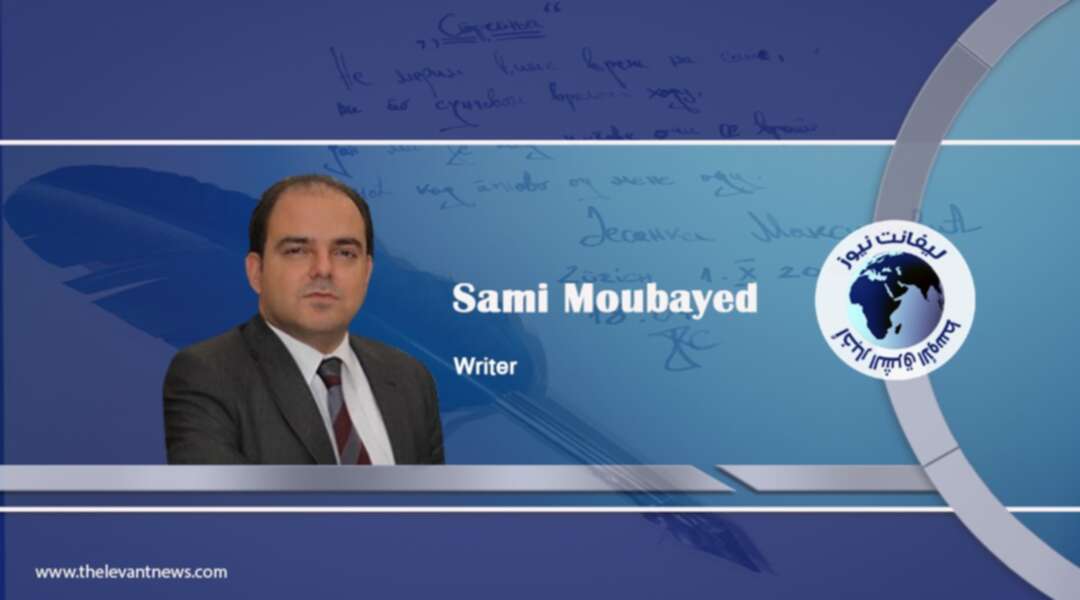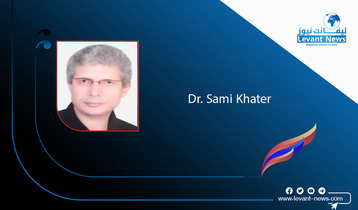-
Khamis Khanjar, a leader-in-waiting for Iraqi Sunnis

Western media first took note of the man after he was sanctioned by the United States back in 2019, on accusations of corruption. Stories went viral about his dodgy relations with Saddam Hussein’s son Uday, and how Khanjar made his wealth through their patronage by selling UAE-manufactured cigarettes in Iraq back in the 1990s. That relationship did not last long and came to an end in 1996, when Khanjar left Iraq to work in Dubai, expanding his business to include real estate development, financial services, and industry. In March 2003, he supported the US-led invasion of Iraq which toppled Saddam and led to his killing, along with his two sons.
Accusations and controversy
Khanjar first graced the post-Saddam scene by financing the Sunni insurgency that erupted in his native Falluja, west of Baghdad. Ten years later, he was accused of harboring ISIS-sympathies, which prompted him to establish a 3,000-man army of Sunni tribal leaders to fight the Islamic State in Iraq. That did not clear his name, however, and in 2015 an Iraqi court ordered his arrest for ties with ISIS, an accusation that he continues to challenge. One year later, Khanjar raised eyebrows by calling for a three-way federation of Iraq between Sunnis, Shiites, and Kurds. The Sunni region, he argued, would become a hub for regional investment by Saudi Arabia and the UAE, while the Shiite one would remain in Iran’s orbit.
Khanjar’s opponents, mainly rival Sunni Muslims, have tried to tarnish his reputation by saying that he was bankrolling his political party—known as al-Mashrou’ al-Arabi (The Arabic Project) from dirty money. They point to the fact that Khanjar’s name appeared in the Pandora Papers, as having established offshore companies in the British Virgin Islands, reportedly for tax evasion. Although offshore registration is not illegal, tax evasion is but there is nothing to prove that Khanjar was involved in any illegal financial conduct, apart from bazaar gossip and rumors, which are always ripe in Baghdad. Opponents have also exaggerated his relationship with Saddam Hussein’s family and with ISIS. To clean his name, Khanjar has hired the Washington DC-based Glover Park Group, a lobbying firm run by former Clinton White House officials, paying as much as $65,000 USD/month. He has also established two satellite channels to promote himself, one named after his native Falluja and another UTV.
Yes despite the character slaughter, Khamis Khanjar is one name to be consulted ahead of the forming of Iraq’s new government. Combined with Halbousi, he is dual leader of the Sunni bloc that includes 49 out of 329 seats. No prime minister can be appointed without their approval. Halbousi is considered close to Saudi Arabia and the UAE while Khanjar is usually looped with Turkey and Qatar. That is another common mistake often related to reports on Khamis Khanjar. He is very keen on staying out of Gulf disputes and taking with one Gulf state against the other. And yet despite his strong relations with the Gulf he is also on excellent terms with Iran and its Shiite parties in Iraq. Prior to the formation of Adel Abdul Mehdi’s cabinet in 2018, he was often in the media meeting with Iran’s proxies, Haidar al-Amiri of the Badr Organization and ex-Prime Minister Nouri al-Malki. Last April, Iranian Foreign Minister Javad Zarif even paid him a visit at his Baghdad residence. The lion’s share of parliamentary seats remains in the hands of these Shiite parties, and Khanjar realizes that he needs to work with them to increase his clout in Sunni politics.
The Lebanon comparison
That is what Rafik al-Hariri did when first becoming prime minister back in 1992. He reached out to Hezbollah, welcoming them as partners in post-war Lebanon while promising to protect their arms. In return, they supported his political rise until relations turned sour in 2004. Like Hariri before him, Khanjar is walking the tightrope by courting the Shiites to cement his grip on Sunni politics. Both owe their political careers to the massive wealth that is at their disposal, made through business deals in the Arab Gulf. When Hariri returned to Lebanon at the end of the civil war, traditional Sunni leaders were either too old, like ex-Prime Minister Saeb Salam, or too weak, like ex-premier Omar Karami, making his rise a relatively easy task. The same applies to Iraq, where no Sunni Muslim leader has emerged to replace Saddam Hussein, although it has been nearly nineteen years since his removal from power in 2003. The few names that did emerge, like Saleh al-Mutleq and Tarek Hashimi, lacked the money and charisma to establish themselves as pan-community leaders.
Khanjar’s only opponent now is Speaker Mohammad al-Halbousi, who has none of Khanjar’s deep pockets. He is rising in open territory, among a headless community that is dying for both leadership and money. Khanjar promises to provide both, and for that, he is one man to be watched and observed.

BY: Sami Moubayed
You May Also Like
Popular Posts
Caricature
BENEFIT Sponsors Gulf Uni...
- April 17, 2025
BENEFIT, the Kingdom’s innovator and leading company in Fintech and electronic financial transactions service, has announced its sponsorship of the “Innovation and Sustainable Technology Solutions Competition (GU - IST Solutions), hosted by Gulf University at its main campus.
This strategic sponsorship reflects BENEFIT’s active role in advancing technological innovation and fostering sustainable solutions to future challenges. It also seeks to empower Bahraini youth by enhancing their skills, capabilities, and competitiveness in innovation and solution development—contributing meaningfully to the broader goals of sustainable development across all sectors.
As part of BENEFIT’s active involvement in the competition, the company has announced that Hanan Abdulla Hasan, Senior Manager of Public Relations and Communication, will serve on the competition’s supervisory committee. Her upcoming participation reflects BENEFIT’s forward-looking commitment to championing academic and professional excellence.
Commenting on the occasion, Hanan Abdulla Hasan, Senior Manager of Public Relations and Communication at BENEFIT, said, “We are privileged to support this pioneering initiative, which aligns seamlessly with BENEFIT’s enduring commitment to fostering innovation and nurturing the potential of Bahrain’s youth. Our participation is rooted in a deep sense of social responsibility and a firm belief in the pivotal role of innovation in shaping a sustainable future. Through such platforms, we seek to empower the next generation with the knowledge, skills, and foresight required to develop impactful solutions that address future challenges, in line with the United Nations Sustainable Development Goals 2030.”
Dr. Aseel Al Ayash Dean of the College of Engineering in Gulf University commented, “We extend our sincere gratitude to BENEFIT for their generous sponsorship and support of the Innovation and Sustainable Technology Solutions Competition. This contribution plays an instrumental role in helping us achieve the strategic goals of this initiative, namely, cultivating a culture of innovation and sustainability, encouraging efforts that address the imperatives of sustainable development, and enhancing the practical and professional capabilities of our students and participants.”
The event will bring together a diverse spectrum of participants, including secondary school students, university undergraduates, engineers, industry professionals, entrepreneurs, academic researchers, and subject matter experts representing a wide range of disciplines.
The competition seeks to inspire participants to develop and present innovative, sustainable technologies aimed at addressing pressing environmental, social, and economic challenges. It encourages the formulation of business models that integrate advanced technological solutions with core principles of sustainability. Moreover, it serves as a platform for emerging leaders, entrepreneurs, and innovators to contribute to the advancement of the Sustainable Development Goals, promote the ethos of responsible technology, and demonstrate its transformative potential across various sectors.
Attendees will have the opportunity to view a series of project presentations submitted by participants, covering diverse areas such as eco-friendly product design, smart and sustainable innovations, renewable energy technologies, water conservation and management, waste minimisation and recycling, green architectural solutions, and sustainable transportation systems. Outstanding projects will be formally recognised and awarded at the conclusion of the event.
opinion
Report
ads
Newsletter
Subscribe to our mailing list to get the new updates!




















